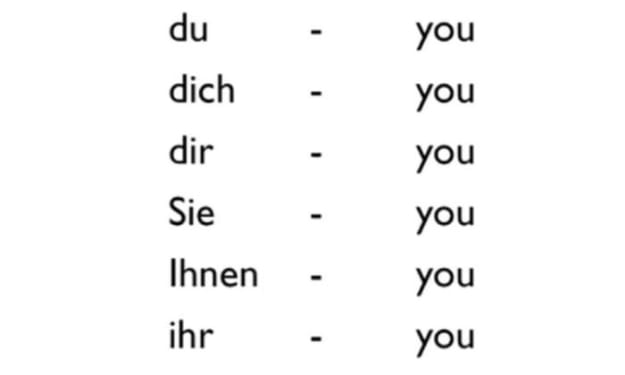Discover Effective Strategies for Healthy Weight Loss to Lose Weight and Feel Great
Welcome to our in-depth guide to healthy weight loss. We recognize that losing weight can be difficult, but with the appropriate tactics and mindset, it can be a rewarding and achievable process.
Whether you’re looking to improve your overall health, boost your self-confidence, or simply fit into your favorite pair of jeans, we’re here to provide the guidance and support you need to succeed.
In this article, we’ll be sharing evidence-based strategies for weight loss success, starting with the importance of setting realistic goals and understanding the basics of weight loss. We’ll also dive into the role of a healthy eating plan, regular physical activity, and other lifestyle factors that can contribute to your weight loss journey.
We understand that everyone’s weight loss journey is unique, which is why we’ve included tips and advice for overcoming common challenges, such as stress and emotional eating, plateaus, and staying motivated.
So, let’s dive in and discover the effective strategies for healthy weight loss that will help you feel great and achieve your goals.
Set Realistic Goals for weight-loss success.
Losing weight is a journey that requires commitment and dedication. It is essential to set realistic goals that will motivate you to reach your desired weight while being sustainable in the long term. Here are some tips that will help you set achievable targets for your weight loss journey.
Understand Your Body
Before setting any goals, it is essential to understand your body’s unique needs and limitations. Consider factors such as age, gender, and activity level to determine a reasonable weight loss goal that is healthy and appropriate for your situation.
Be Specific
General goals such as “losing weight” are not specific enough to track progress effectively. Instead, set specific targets, such as losing a certain number of pounds or inches off your waistline. This way, you can track your progress and adjust your approach accordingly.
Make Goals Realistic
Setting overly ambitious goals can lead to frustration and discouragement. It is crucial to set realistic goals that you can achieve with hard work and dedication. Consider your lifestyle, work schedule, and other commitments when setting goals to ensure they are practical and achievable.
Set a Deadline
Having a deadline can help keep you accountable and motivated to reach your goals. Set a realistic timeline for achieving your weight loss goal, and break it down into smaller milestones along the way. Celebrating small successes will help boost your confidence and keep you motivated.
By setting realistic goals, understanding your body’s unique needs, being specific, making goals real, and developing a deadline, you can achieve weight loss success. Remember, losing weight is a journey, and it takes time and effort to achieve a healthy and sustainable weight. Stay focused, stay motivated, and always celebrate your progress.
Understand the Basics of Weight Loss
Before diving into specific strategies for weight loss, it’s important to understand the fundamentals of shedding extra pounds. At its core, weight loss occurs when you burn more calories than you consume. This is known as a calorie deficit. By consistently maintaining a calorie deficit, you can lose weight over time.
Of course, achieving a calorie deficit is easier said than done. It requires making smart choices about what you eat and how you move your body. Exercise is an excellent way to burn calories and increase your metabolism, which can help you lose weight even when you’re not working out. Incorporating cardiovascular exercise (like running or cycling) and strength training (like lifting weights) into your routine can help you lose weight.
In addition to exercise, diet plays a critical role in weight loss. Eating a balanced diet with plenty of protein, fiber, and healthy fats can help you feel full and satisfied, while also providing essential nutrients for overall health. It’s also important to pay attention to portion sizes and avoid overeating.
Ultimately, successful weight loss requires a combination of calorie control and physical activity. By understanding the basics of weight loss, you can begin to develop a customized plan that works for your lifestyle and goals.
Develop a Healthy Eating Plan
One of the most critical factors in successful weight loss is developing a healthy eating plan. While exercise is essential, it’s important to remember that a calorie deficit is necessary to achieve weight loss goals.
A healthy eating plan should consist of a balanced diet that provides all the necessary nutrients while limiting unhealthy foods and excess calories. Here are some tips for creating a healthy eating plan:
Tips and Description :
Focus on whole, unprocessed foods: Eat more fruits, vegetables, whole grains, lean proteins, and healthy fats. Avoid processed foods that are high in sodium, sugar, and unhealthy fats.
Practice portion control: Use smaller plates, measure out portions, and be mindful of how much you eat.
Limit added sugars and saturated fats: Avoid sugary drinks and snacks, and choose lean meats and plant-based proteins instead of fatty cuts of meat.
Stay hydrated: Drink plenty of water throughout the day to stay hydrated and help control hunger.
Remember that developing a healthy eating plan doesn’t mean completely depriving yourself of your favorite foods. It’s okay to indulge in moderation and include treats in your diet now and then.
Working with a registered dietitian can also help create a personalized eating plan that meets your individual needs and preferences. With a healthy and balanced diet, you’ll be on the right track toward achieving your weight loss goals.
Incorporate Regular Physical Activity
Physical activity is a crucial component of any weight loss plan. Not only does it burn calories and contribute to a calorie deficit, but it also has numerous health benefits. Regular physical activity can improve cardiovascular health, increase strength and flexibility, and boost energy levels.
There are many different types of exercises you can incorporate into your routine, from cardio like running or cycling to strength training with weights or bodyweight exercises. Choose activities that you enjoy and that fit your lifestyle, as this will increase the likelihood of sticking with them in the long term.
Benefits of Cardio Exercise
Cardiovascular exercise, also known as cardio, is any activity that raises your heart rate and gets you breathing harder. This type of exercise is particularly effective for burning calories and improving cardiovascular health.
Examples of Cardio Exercises and Calories Burned Per Hour*
Running (8 mph): 1,074
Cycling (15–16 mph): 850
Jumping Rope: 750
*Calories burned are based on a 160-pound person
Benefits of Strength Training
Strength training is another important component of any weight loss plan. It helps build muscle, which in turn increases metabolism and the number of calories burned at rest. It also helps improve bone density and joint health.
Examples of Strength Training Exercises and Calories Burned Per Hour*
Weightlifting (moderate intensity): 364
Push-ups: 336
Squats: 288
*Calories burned are based on a 160-pound person
Remember, the key is to find activities that you enjoy and that fit your lifestyle. Aim for at least 30 minutes of moderate-intensity physical activity most days of the week. As you progress, you can gradually increase the intensity and duration of your workouts to continue challenging your body and seeing results.
Manage Portion Sizes and Mindful Eating
One of the most effective strategies for weight loss is managing portion sizes and practicing mindful eating. By being more aware of how much and what we eat, we can make better choices and control our caloric intake. Here are some practical tips to get started:
Tips and Description:
Use a smaller plate: Research has shown that using a smaller plate can help reduce portion sizes and lead to fewer calories consumed.
Measure portions: Invest in a food scale or use measuring cups and spoons to ensure accurate portion sizes.
Eat slowly and chew thoroughly: By taking the time to savor each bite and chew thoroughly, we can better enjoy our food and give our body time to register fullness.
Practice mindful eating: Pay attention to how your body feels before, during, and after meals. Avoid distractions such as television or phones and focus on the act of eating.
These tips can also help combat mindless eating, which can lead to overeating and sabotage weight loss efforts. By being more mindful and intentional with our eating habits, we can promote better digestion, control cravings, and achieve our weight loss goals.
Stay Hydrated and Limit Sugary Drinks
Staying hydrated is crucial for weight loss success. Drinking water helps to flush out toxins, aids digestion, and can even help to reduce hunger. It is recommended to drink at least 8 cups (64 ounces) of water per day, although this may vary depending on your individual needs.
It’s also important to limit your intake of sugary drinks such as soda, fruit juices, and energy drinks. These beverages are high in calories and sugar and can contribute to weight gain. Instead, opt for water, unsweetened tea, or low-calorie drinks such as flavored sparkling water.
Sugary Drinks to Avoid and Healthier Alternatives
Soda: Water with a slice of lemon or lime
Fruit Juice: Water infused with fruit or herbs
Sports Drinks: Coconut water
Energy Drinks: Green tea or herbal tea
Remember, what you drink is just as important as what you eat when it comes to weight loss. By staying hydrated and limiting sugary drinks, you’ll be taking a big step towards achieving your healthy weight loss goals.
Get Enough Quality Sleep
Sleep is often overlooked when it comes to weight loss, but it is an essential factor to consider. Quality sleep plays a crucial role in regulating the hormones that control hunger and fullness, making it easier to manage cravings and stick to healthy eating habits.
When we don’t get enough sleep, our body produces more of the hormone ghrelin, which stimulates hunger, and less of the hormone leptin, which signals fullness. This can lead to overeating and weight gain over time.
To ensure that you are getting enough quality sleep, make sure to establish a consistent sleep routine. Aim to go to bed and wake up at the same time every day, even on weekends. Avoid using electronic devices for at least an hour before bed and create a relaxing environment in your bedroom.
Additionally, engaging in regular physical activity can improve the quality of your sleep. Try to incorporate exercise into your daily routine, but avoid working out too close to bedtime, as it can make it harder to fall asleep.
Remember, getting enough quality sleep is not only essential for weight loss but also for overall health and well-being.
Manage Stress and Emotional Eating
Stress and emotional eating are two factors that can hinder weight loss efforts. It’s important to find healthy ways to manage stress and emotions to avoid turning to food for comfort.
Here are some tips for managing stress and emotional eating:
Practice mindfulness: Take time to focus on your thoughts and feelings without judgment. Mindfulness practices like meditation, deep breathing, and yoga can help reduce stress and promote a sense of calm.
Find healthy outlets for stress: Instead of reaching for food, find alternative ways to cope. Engage in physical activity, spend time outdoors, or pursue a hobby you enjoy.
Identify triggers: Recognize situations or emotions that lead to emotional eating. Once you identify your triggers, you can take steps to avoid or manage them healthily.
Build a support network: Surround yourself with people who are supportive of your weight loss goals. Reach out to friends, family, or a therapist when feeling overwhelmed or stressed.
“Mindful eating is not a diet. It’s a practice that transforms your relationship with food and eating. When you eat mindfully, you become more aware of your thoughts, feelings, and physical sensations related to food, and this awareness can help you make healthier choices.” The Center for Mindful Eating
By managing stress and emotional eating, you can build a healthier relationship with food and improve your chances of long-term weight loss success.
Seek Support and Accountability
Weight loss can be a challenging journey, and seeking support and accountability can make a significant difference. Having a supportive friend, family member, or weight loss group can provide encouragement and motivation to keep going even when the going gets tough.
If you don’t have someone in your life who can offer support, consider joining a weight loss group or utilizing online resources. There are many online communities where you can connect with others who are on the same journey and can offer insight, tips, and motivation.
Find an Accountability Partner
Having an accountability partner can also help you stay on track with your weight loss goals. This can be someone who checks in on your progress regularly or someone who works towards similar goals and holds each other accountable.
Consider partnering with a friend or family member who is also looking to lose weight or join a weight loss group that offers an accountability system. Accountability can help you stay motivated and committed to your goals even when temptation strikes.
Celebrate Your Successes
As you make progress on your weight loss journey, it’s essential to celebrate your successes. Take time to acknowledge and appreciate the milestones you reach along the way, no matter how small they may seem.
Consider setting up a reward system for yourself when you reach specific goals. This could be anything from treating yourself to a new outfit to taking a weekend getaway.
Remember, celebrating your successes is an important part of staying motivated and committed to reaching your weight loss goals.
Track Progress and Celebrate Milestones
Tracking progress is an essential part of achieving weight-loss goals. It allows you to see how far you’ve come and motivates you to keep going. There are many ways to track progress, from using a food diary to taking measurements or using a weight loss app. Choose the method that works best for you and make it a consistent part of your routine.
In addition to tracking your progress, it’s important to celebrate your milestones along the way. Whether it’s losing your first five pounds or running your first 5k, take the time to acknowledge and celebrate your achievements. This can help maintain the motivation needed to reach your long-term goals.
Stay Motivated and Overcome Plateaus
Weight loss is a journey, and like any journey, it can have its rough patches. There may be times when you feel like you’re not making progress or seeing the results you want. These are known as weight loss plateaus, and they’re a common occurrence in the weight loss process. However, it’s important not to let plateaus discourage you from reaching your weight loss goals. Here are some tips to help you stay motivated and overcome plateaus:
Change up your routine
If you’ve hit a weight loss plateau, it may be time to shake up your routine. Try mixing up your exercise routine, or changing the types of food you’re eating. Adding variety can help jumpstart your metabolism and get you back on track.
Set new goals
If you’ve reached a certain weight or fitness level, it can be easy to get complacent. Instead of letting yourself get comfortable, set new goals to work towards. This can help keep you motivated and give you a sense of purpose in your weight loss journey.
Find a support system
When you’re feeling discouraged, it can be helpful to have a support system in place. This can be a friend, family member, or weight loss group. Having people who understand what you’re going through and can offer words of encouragement can make all the difference.
Track your progress
Tracking your progress can help you see how far you’ve come, even if it doesn’t feel like you’re making progress at the moment. Keep a food and exercise diary, take progress photos, or use a fitness tracker. This can help you stay motivated and accountable.
Practice self-care
It’s important to take care of yourself both physically and mentally during the weight loss journey. Make sure you’re getting enough rest, staying hydrated, and engaging in activities that make you happy. This can help reduce stress and keep you motivated.
Remember, weight loss is a journey with ups and downs. Don’t let plateaus discourage you from reaching your goals. Stay motivated, make changes when necessary, and celebrate your progress along the way.
Frequently Asked Questions (FAQ)
As you continue on your weight loss journey, it’s normal to have a few questions along the way. Here are some of the most commonly asked questions related to healthy weight loss:
Q: How much weight can I expect to lose per week?
A: The amount of weight you can expect to lose per week will vary depending on your starting weight, diet, and exercise habits. A safe and sustainable rate of weight loss is 1-2 pounds per week.
Q: Do I have to cut out all carbs to lose weight?
A: No, you don’t have to cut out all carbs to lose weight. It’s essential to choose healthy, complex carbohydrates such as whole grains, fruits, and vegetables. Focus on portion control and balance in your diet.
Q: Can I still eat out with friends while trying to lose weight?
A: Yes, you can still eat out with friends while trying to lose weight. Look for healthier options on the menu, such as grilled or steamed entrees, salads, and vegetable sides. Control portions by splitting meals or taking home leftovers.
Q: What’s the best type of exercise for weight loss?
A: The best type of exercise for weight loss is one that you enjoy and can sustain long-term. A combination of cardio and strength training is effective for weight loss. Walking, jogging, swimming, cycling, and weight lifting are all great options.
Q: How important is sleep for weight loss?
A: Sleep is essential for weight loss. Lack of sleep can alter hormones that regulate appetite and lead to overeating. Aim for at least 7–8 hours of quality sleep per night.
Q: Can stress affect weight loss?
A: Yes, stress can affect weight loss. Stress can lead to emotional eating and disrupt sleep, both of which can hinder weight loss efforts. Finding healthy ways to manage stress, such as exercise or meditation, can help.
Q: Is it okay to have a cheat day?
A: Having a cheat day every once in a while can help you stay on track with your weight loss goals. However, it’s important to practice moderation and control portions, even on a cheat day.
Q: How do I stay motivated when I hit a plateau?
A: When you hit a weight loss plateau, it’s important to stay motivated and continue with healthy habits. Focus on non-scale victories, such as increased energy or an improved mood. Consider changing up your exercise routine or trying a new healthy recipe.
Remember, everyone’s weight loss journey is unique. Don’t hesitate to reach out for support and guidance as you work towards your goals.
About the Creator
Alex Gray
Passionate fitness trainer and supplements expert. Personalized workouts, science-backed supplements. Safety first. Inspiring global change.







Comments
There are no comments for this story
Be the first to respond and start the conversation.